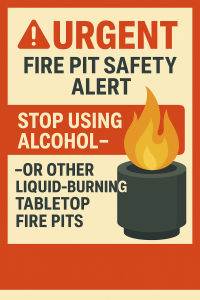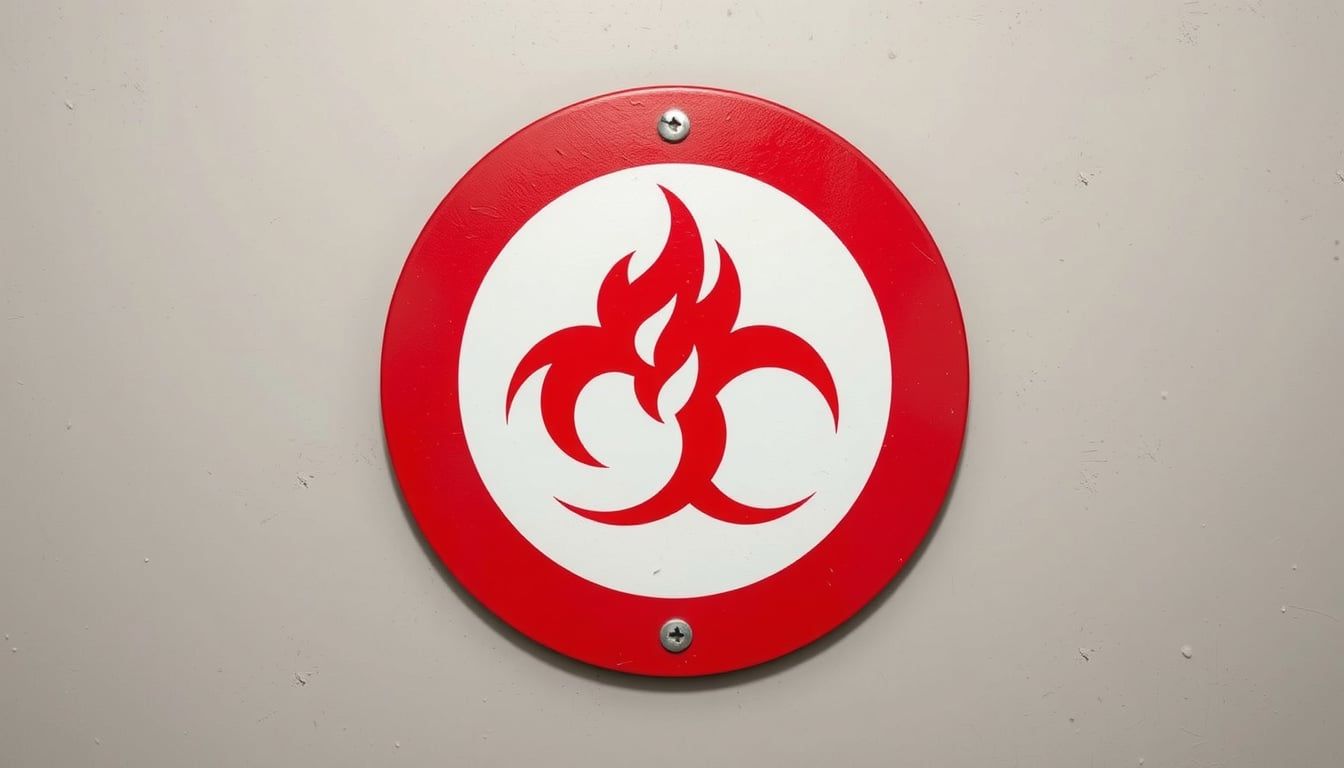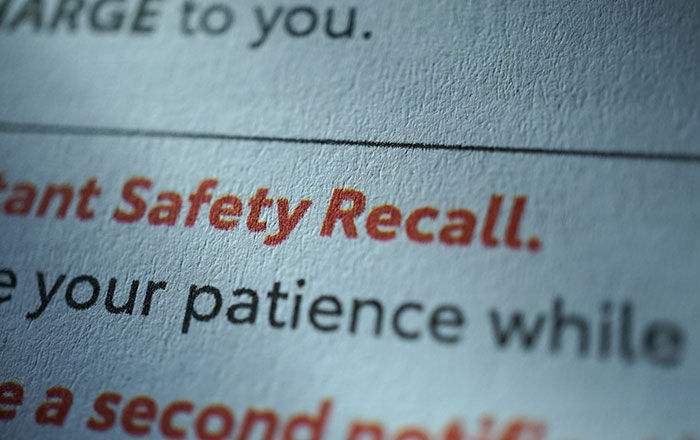At McWhirter, Bellinger & Associates, we stay informed on the latest consumer safety issues so we can protect those who’ve been injured by defective or dangerous products. Recently, a critical warning from the U.S. Consumer Product Safety Commission (CPSC) caught our attention , and it should concern anyone who owns a tabletop fire pit powered by alcohol or other liquid fuels.
A Growing Fire Hazard in American Homes

Tabletop fire pits have surged in popularity in recent years. Compact and stylish, these devices are often used indoors or outdoors to create a cozy ambiance or provide supplemental heat. But beneath their sleek designs lies a serious danger.
The CPSC has reported over 60 serious burn injuries and at least two deaths connected to alcohol- and liquid-fueled tabletop fire pits. Many of these injuries are the result of a phenomenon known as “flame jetting” , a sudden burst of flame that can erupt when liquid fuel vapors ignite unexpectedly. These flash fires often happen when someone refuels a unit that is still hot or hasn’t been used properly.
How Do These Fire Pits Work, and Why Are They So Dangerous?
Liquid-fueled tabletop fire pits typically burn ethanol, isopropyl alcohol, or similar flammable substances. The fuel is poured into a reservoir or canister and lit manually. The danger arises when:
- Vapors build up and ignite suddenly in an explosive burst,
- The fire pit is refueled while still warm or actively burning,
- The device tips over, spilling flaming liquid,
- Or poor design or defective construction fails to contain the fire.
Victims have suffered life-altering injuries, including third-degree burns, facial disfigurement, and permanent scarring. These accidents often occur during peaceful gatherings, when users are unaware of the product’s hidden risks.
What the CPSC Is Advising
In light of these serious safety concerns, the CPSC is urging consumers to:
- Immediately stop using liquid-fueled tabletop fire pits.
- Do not sell, donate, or give away these products , doing so could endanger others.
- Dispose of the devices safely, following local hazardous waste disposal guidelines.
- Check for product recalls, especially if you own models from brands like Colsen and FLIKRFIRE, which have been involved in previous safety alerts.
- Report any fire pit-related incidents to SaferProducts.gov.
If you or someone you love has been injured by one of these fire pits, it’s essential to act quickly and protect your legal rights.
Legal Grounds for Suing a Manufacturer
Manufacturers and retailers of consumer products are required by law to ensure their products are reasonably safe when used as intended. In South Carolina and across the U.S., product liability claims are typically brought under strict liability, negligence, or breach of warranty theories.
Some key legal standards involved include:
- Strict Product Liability (Restatement (Second) of Torts § 402A) – A manufacturer can be held liable if their product is defective and unreasonably dangerous, regardless of whether they acted negligently.
- South Carolina Code § 15-73-10 – This law adopts strict liability in tort for defective products sold in South Carolina.
- Failure to Warn – If the manufacturer did not provide clear warnings about the risks of flame jetting or safe refueling procedures, they may be liable for injuries.
- Design Defect Claims – If the fire pit design allows for unstable fueling, tipping, or uncontrolled flame projection, it may be considered defectively designed.
- Negligence – If a manufacturer failed to test the product adequately or ignored known dangers, they could be held liable for injuries that result.
What You Must Prove to File a Product Liability Claim
To successfully pursue a claim after being injured by a tabletop fire pit, you generally must show:
- The product was defective , either in design, manufacturing, or labeling.
- The defect caused your injury , such as a flame jetting accident or explosion while refueling.
- You were using the product as intended , or in a way that was reasonably foreseeable.
- You suffered actual damages , including medical expenses, lost income, or pain and suffering.
Our legal team works with expert witnesses, engineers, and investigators to help prove these elements and hold negligent companies accountable.
Injured by a Tabletop Fire Pit? We’re Here to Help.
At McWhirter, Bellinger & Associates, we’ve helped many South Carolinians recover compensation in product liability cases , including cases involving defective home products like space heaters, gas appliances, and now, tabletop fire pits. If you were burned or harmed by a malfunctioning or dangerously designed fire pit, you may be eligible for compensation for:
- Medical bills (past and future),
- Lost wages,
- Pain and suffering,
- Scarring or disfigurement,
- Emotional trauma, and
- Punitive damages in cases of gross negligence.
Manufacturers have a legal duty to ensure their products are safe for consumers. When they fail , whether by selling defective designs, failing to warn users, or ignoring testing standards , they can and should be held accountable.
Why Choose McWhirter, Bellinger & Associates?
We have decades of experience taking on large manufacturers and insurance companies. Our legal team knows how to build strong product liability cases backed by expert testimony and thorough investigation. We will fight for the compensation you deserve, so you can focus on healing and rebuilding.
Your consultation is completely free , and you don’t pay unless we win your case. If you or a loved one has been injured by a tabletop fire pit, contact McWhirter, Bellinger & Associates today. Call us or fill out our online form to schedule your free case evaluation. There’s no obligation , just answers and experienced legal help from a team that cares.

















